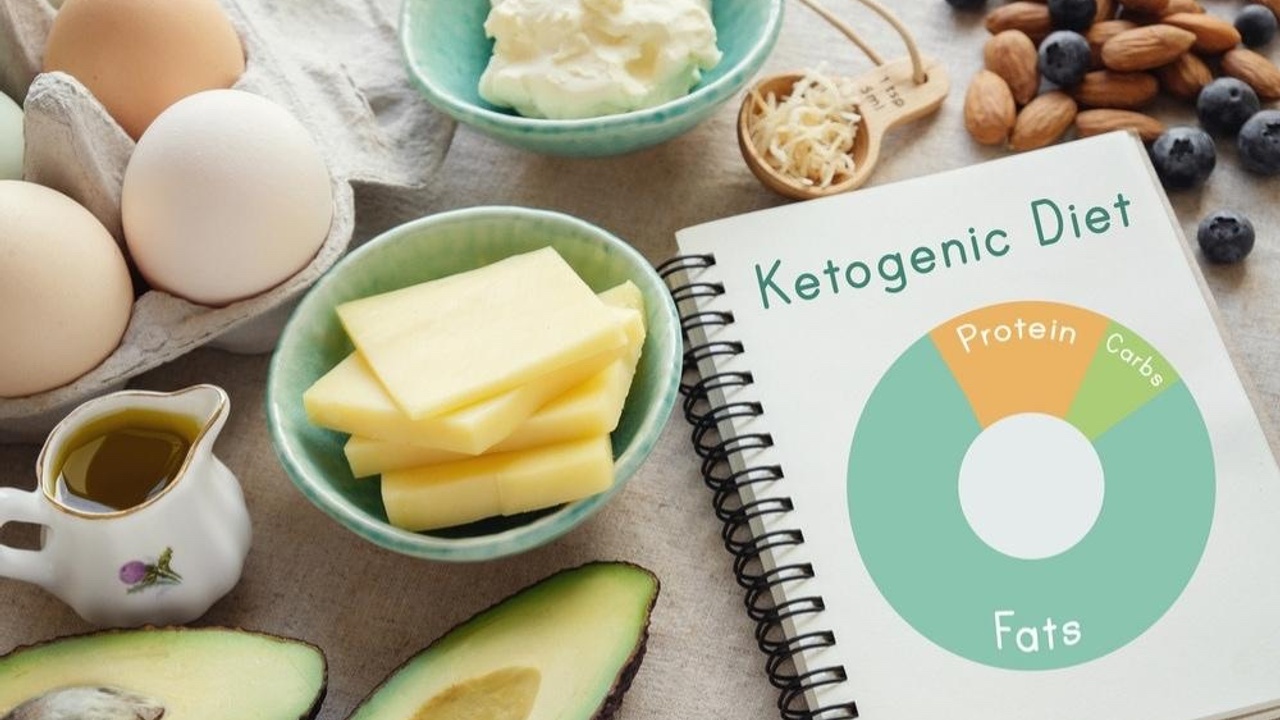Ketogenic Diet & Cognitive Function

The ketogenic diet has become one of the biggest dietary movements of our time, neck and neck almost to veganism. Now you all know that I am a huge proponent of plants being a dominant feature of our diet. But, that being said, whilst I do eat ungodly amounts of green vegetables, I do veer very close to the low carb high fat diet, and always do extremely well on it. Im not true kept, but not far off.
The true ketogenic diet will find 70% of its entire energy intake coming from fat. This son makes the body choose fat as a preferred fuel source. Whilst we have often been taught that glucose if the primary fuel source for Humans and that we need a healthy supply of glucose, that isn’t completely accurate as such. Glucose is an effective and EASILY utilised fuel source that our body can rapidly turn into ATP – the energy currency our body actually runs on, and is an energy source that can be stored in the form of glycogen. But, our body is adaptable. It has had to be through the whole of our evolution as a species. During our evolution we had times of feast and famine. Times where fruits, and roots and vegetables were abundant, and other times where these types of glucose foods were scarce. With that in mind, our body has also adapted to be able to use fat derived substances called ketone bodies as an energy source, meaning it can burn fat as fuel. If this seems ridiculous to you, then what is it that 62% of our population are storing excessively on their body? It isn’t a spare tire of glucose. It converts excess glucose into triglycerides – easily burned fats that can be stored for later to tap into when reserves get low (which they never do in the modern world).
So, that is the basic idea behind the veto diet – shift your body over to preferring fat as a fuel or at least effectively being able to use fat as a fuel source more efficiently. With this shift comes some interesting potential benefits. Some of which, like those for cardiovascular health are still being hotly debated. Others, such as those upon the brain and cognitive function are far more widely understood. Ketogenic diets have for example been used clinically to treat childhood epilepsy for a couple of decades now. Some people are now using kept diets as almost a cognitive bio hack. Justified?
Ketogenic diets may inhibit age related cognitive decline
One of the things that almost seems inevitable in our lives is that our brains ‘slow down’ or get a little woolly as we age. One thing is for sure is that the brain, some regions more than others, can become less effective at using glucose as an energy source. Alzheimers plaques for example are almost diabetic in the degree to which they are unable to adequately able to use glucose to function. However, ketogenic diets rich in Medium Chain Triglycerides have been shown to both reduce cognitive decline and improve cognitive decline symptoms in patients that are already displaying it (Hernandez et al, 2018). This is because whilst glucose metabolism is impaired, fatty acid utilisation for fuel is not, and when kept adapted, these cells that were not able to use glucose effectively, snap back in to life when primed to use ketone bodies.
Ketogenic diets may lead to calmer moods
There is some data to suggest that kept diets may help to stabilise mood. I grant you that this is from anecdotal reports and theoretical models that do have biological plausibility. It seems that when ketone bodies are the primary fuel source for the brain, there is a preferential expression of the neurotransmitter GABA that I have covered when I have written about sleep and stress. It is the primary inhibitory neurotransmitter. This is the neurotransmitter that can calm the excessive running away that our brains fall into in our modern way of living.
My personal experience
Let’s finish on a piece of pure anecdote here. I personally find that when I adhere to a low carb moderate fat, moderate protein diet, with good amounts of non starchy vegetables, my focus, productivity and mental acuity absolutely goes through the roof!! This has been sustained long term too. I also find that when my diet is too starchy, I quickly go into brain fog, apathy, lethargy and struggle to get projects started let alone finished.
References
Hernandez AR, Hernandez Caesar M, Compos Keila, Leah Truckenbrod, Quinten Federico, Brianna Moon, Joseph A. McQuail, Andrew P. Maurer, Jennifer L. Bizon, and Sara N. Burke. A Ketogenic Diet Improves Cognition and Has Biochemical Effects in Prefrontal Cortex That Are Dissociable From Hippocampus. Front Aging Neurosci. 2018; 10: 391.





